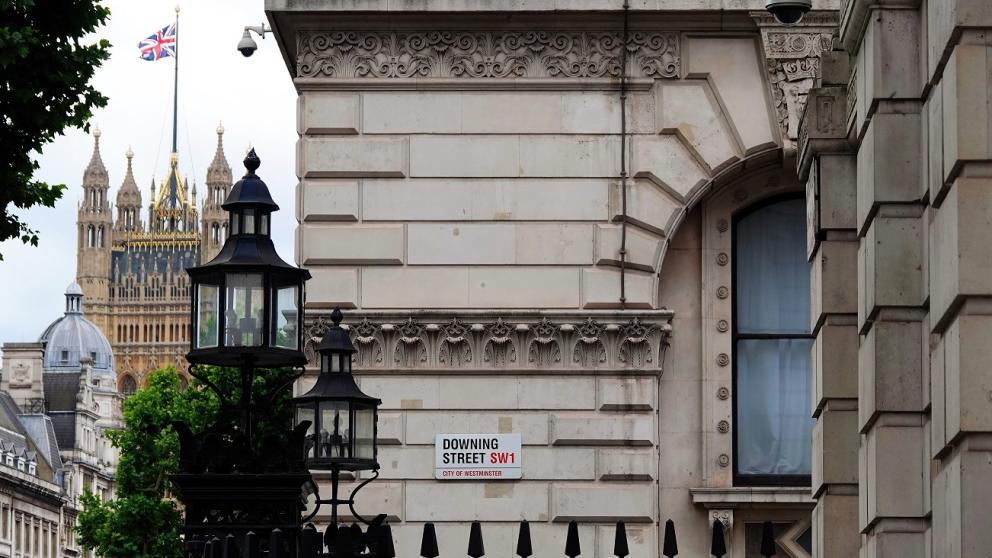
On the 15 March, Chancellor Jeremy Hunt will reveal his Spring Budget 2023. On the same day, the latest economic forecasts will be published by the Office for Budget Responsibility (OBR). So, what should we expect from this budget? Salford Business School's Dr Maria Paola Rana, Lecturer in Economics and Finance, shares her thoughts.
Before answering this question, a recap of the past six months and previous two budgets are particularly useful to put the Chancellor’s challenges in context.
The last six months…
First, let’s not forget that these are unprecedented times, not only for the UK but for the global economy in general. However, in addition to the major challenges shared by economies globally (i.e., post-pandemic recovery, international conflicts and the geopolitical climate), the UK has also faced political instability, including three new Prime Ministers (PM) in just seven weeks, between September and October 2022, and it is also facing major complications due to Brexit.
It seems a while ago now but, in September 2022, only six months ago, we were welcoming a new PM, Liz Truss, and a new Chancellor, Kwasi Kwarteng. At that time, we had a so-called ‘mini-budget,’ which was everything but mini and completely ignored the Office for Budget Responsibility (OBR).
The plan of the then PM was to decrease taxes paid by those who are better off (i.e., higher earners) and borrow to do so. According to ‘Trussonomics,’ this would have stimulated much-needed economic growth. The financial markets did not like the idea and, as a consequence of what is now commonly referred to as the Truss-Kwarteng’s disastrous mini-budget, government borrowing costs increased to the highest rates since the financial crisis in 2008, and the value of the pound decreased to a record low.
It’s also important to remember that the financial markets have been closely watching the UK since the Brexit referendum in 2016. Following the mini-budget it became clear that, despite major U-turns on initial tax cuts, intervention from the Bank of England and the firing of the Chancellor, the financial markets still did not have confidence in the UK economy and its political management. Liz Truss then resigned and in October 2022 we welcomed a new PM, Rishi Sunak, former Chancellor of the Exchequer for Johnson’s Government during the pandemic.
Sunak’s new Chancellor, Jeremy Hunt, had the difficult task of unveiling an ‘emergency budget’ in November 2022, mainly to announce major U-turns and a change in strategy with respect to the previous disastrous mini-budget. This was an attempt to deliver a credible plan for stability, growth and public services, while regaining the trust and confidence of the financial markets.
Predictions for the 2023 Spring Budget
Hunt will have to unveil the upcoming Spring Budget on Wednesday. The economic outlook for the UK in 2023-24 is now looking better than it was in November; government borrowing costs have decreased, however it is largely anticipated that ‘significant’ tax cuts will not be included in the coming budget. Public finances are still fragile. In fact, in the financial year to January, the public sector borrowed £117bn which is less than expected by the OBR, but still £7bn more than over the same period in the previous year. With the financial markets still closely watching, it does not come as a surprise that the Chancellor wants to remark his key priority of keeping public debt under control.
High inflation persists, as well as the wave of public sector strikes and, with workers asking for an increase in pay, the Chancellor will have to decide what to do in terms of public sector wages, contemplating one-off bonuses or permanent increases. The Institute of Fiscal Studies (IFS) says that an increase in public wages or bonuses funded by an increase in taxes rather than borrowing, might reduce the inflationary pressures.
Even if significant tax cuts should not be anticipated, an extension for a further three months from April of the energy support scheme (i.e., the Energy Price Guarantee, which caps households’ average annual energy costs at £2,500) is most likely to be included. We might also see fuel duty frozen for a year. These measures will clearly be welcome, but largely insufficient to tackle the severe cost of living crisis facing the country.
The tax increases for investors, specifically the cutting of capital gain tax (CGT) and dividend allowance, due to decrease from £12,300 to £6,000 and from £2,000 to £1,000 in April 2023, will most likely be confirmed. In April 2023, corporation tax will also increase from 19% to 25% and Hunt could also confirm the application of the 15% minimum tax on multinational companies, as per international agreement.
Focusing on the labour force, the insufficiency of which is one of the factors impeding economic growth, the Chancellor has stated on more than one occasion that he intends to implement a number of policies and reforms, including pensions, childcare system and benefits etc., to convince part of the inactive population to join or re-join the labour market.
The hope is that the Chancellor can find the right balance between keeping the financial markets happy, providing the country with the necessary support during a cost of living crisis and ensuring economic growth in the longer term.
For all press office enquiries please email communications@salford.ac.uk.
Share:
